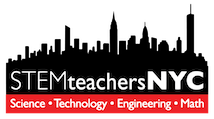
If you want to submit your own workshop please fill out this form.
We welcome all life/environmental science educators of all levels and backgrounds to join us! To get involved, email [email protected] or join the email list!

Participate with the Coalition.
1. Propose an STEM Teaching Workshop
2. Share a resource or idea with the group
3. Ask the network for help or assistance
4. Join us for an upcoming workshop
Themes:
“Many Paths, Many Sources, Independence, Collaboration”

Routes to Success:
+ Connections across & between grades and subjects
+ Rethinking space (rooftop reading garden; indoor hydroponics)
+ Student directed and managed PBL
+ Sample from multiple resources
+ Build interdisciplinary teacher teams
+ Engage students at the policy level
+ Get outside! Learn with your students!
+ Use design challenges
+ Leverage share CER in both science subjects and humanities
+ Link skills and study to potential careers
+ Teachers following their own interest/inspiration
+ Kids want to be around plants!
Challenges and Questions:
+ Doing all work on your own
+ Issues of PBL management
+ Help writing grants
+ Getting youth input
+ Support for teachers new to growing
+ Path is often a blank slate at school
+ Navigating resources, balancing with core curriculum and pedagogy
+ Students want to DO relevant work
+ Comprehensive list of EE books? (Design better resources on climate?)
+ What is the state of climate education in NYC?
Organizational Perspectives:
+ How to help teachers implement?
+ How to learn from how materials are actually implemented?
+ What do you want or need to know from teachers?
+ How to help get materials into classrooms?



